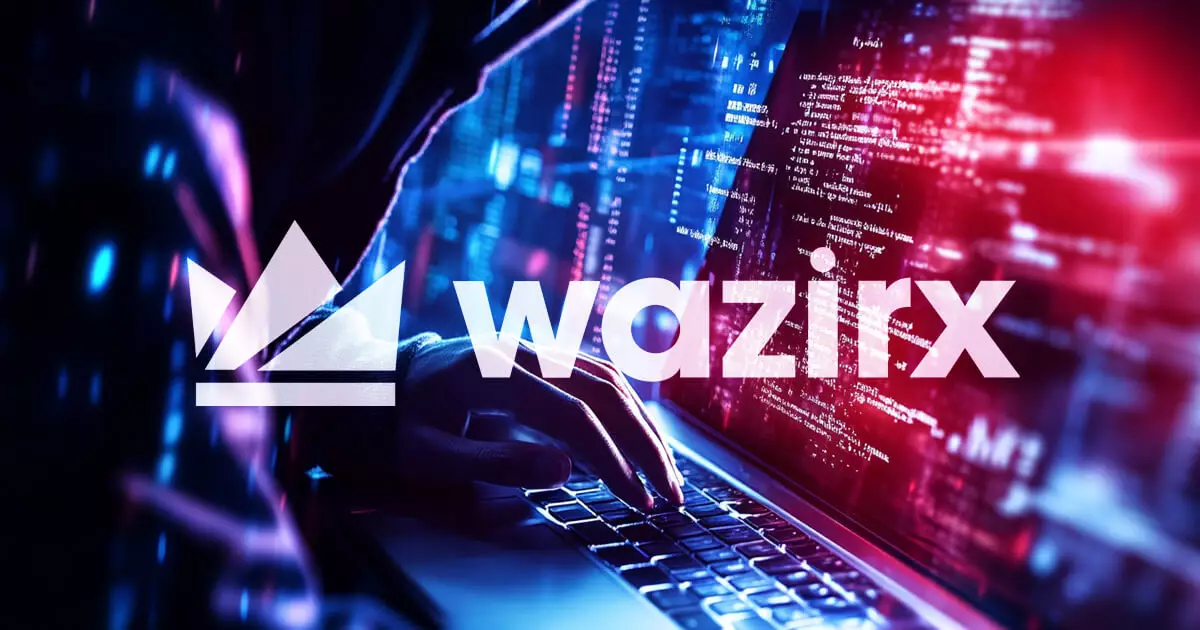The digital finance landscape has transformed significantly over the past decade, characterized by rapid advancements and equally swift exploitation by malicious actors. One of the most prominent incidents underscoring these vulnerabilities is the ongoing investigation surrounding the $235 million breach of WazirX, a leading cryptocurrency exchange in India. As law enforcement agencies intensify their efforts to address this alarming issue, recent developments in the case reveal a convoluted web of deception and accountability that raises questions about network security and collaboration within the cryptocurrency industry.
In a striking move, the Delhi Police have arrested SK Masud Alam from West Bengal, who is believed to be a pivotal figure in this scandal. Allegations suggest that Alam operated under the pseudonym “Souvik Mondal,” establishing a fraudulent account on WazirX, which he subsequently sold via Telegram to a user identified as M. Hasan. This transaction arguably set the stage for the exploit that cost the exchange a staggering $235 million. Following Alam’s arrest, authorities seized three laptops associated with WazirX’s authorized signatories, indicating a thorough attempt to analyze potential misuse of multisig wallets—a security feature intended to enhance protection against unauthorized access and transactions.
The charge sheet, a vital tool in criminal investigations, highlights WazirX’s cooperation by supplying comprehensive Know Your Customer (KYC) data and transaction histories. Yet, a critical inspection conducted by the Indian Cyber Crime Coordination Centre (IFSO) yielded no evidence of breaches within WazirX’s internal systems. This finding casts doubt on the exchange’s cybersecurity protocols and raises the stakes for all parties involved.
The Role of Digital Custodianship
The complexities of this case are compounded by the involvement of Liminal, the digital asset custodian purportedly responsible for securing WazirX’s wallets. Reports from law enforcement suggest that achieving transparency with Liminal has been a challenging endeavor. Authorities have expressed frustration over Liminal’s alleged failure to provide critical information that could facilitate the investigation. This lack of cooperation is set to be featured prominently in upcoming supplementary charge sheets, further complicating the already fraught relationship between WazirX and its digital custodian.
The immediate need for trust and clarity in custodial arrangements on cryptocurrency exchanges like WazirX raises questions about the efficacy of current security measures and the protocols for securing digital assets. The exchanges must ensure responsible practices are put in place to mitigate risks arising from potential lapses by custodians such as Liminal.
In the wake of this crisis, WazirX has unveiled a multi-faceted strategy to recover lost finances and restore stability—a crucial undertaking for the exchange and its creditors. The first element of this recovery plan involves reopening trading on the platform, a tactical move aimed at boosting trading volumes and generating necessary revenue. By sharing collected fees with creditors, WazirX hopes to establish a direct connection between its operational successes and the financial recovery of its stakeholders.
Diversification emerges as a second key initiative. WazirX plans to introduce new services like decentralized exchanges (DEX), staking options, over-the-counter (OTC) desks, and futures trading. This strategy not only aims to attract a wider user base but also serves as a means to solidify the company’s financial footing in a challenging market.
Furthermore, WazirX has committed to investigating legal avenues for reclaiming lost assets, a process designed to safeguard these assets for the benefit of creditors. The company emphasizes its devotion to tracking these assets and preventing any unauthorized withdrawals to ensure the best possible outcome for all affected parties.
Future Outlook and “White Knight” Partnerships
As part of its recovery roadmap, WazirX anticipates seeking out “White Knight” partnerships, a term used to describe investors willing to provide essential capital during a financial crisis. By inviting new funds into the recovery process, WazirX aims to not only stabilize its operations but also provide much-needed compensation to its creditors.
The investigative and recovery efforts surrounding WazirX encapsulate the broader challenges that the cryptocurrency industry faces in terms of security and trust. As regulatory scrutiny increases and stakeholders demand accountability, the lessons learned from this incident will inevitably shape future practices and security measures across the digital finance landscape. As the investigation unfolds, cryptocurrency exchanges must cultivate a culture of transparency, responsibility, and cooperation to navigate the complexities of this rapidly evolving sector.


Leave a Reply